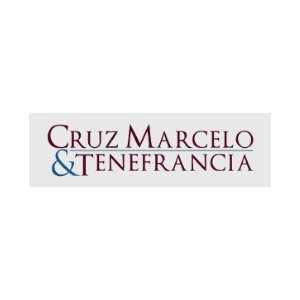Best Information Technology Lawyers in Taguig
Share your needs with us, get contacted by law firms.
Free. Takes 2 min.
List of the best lawyers in Taguig, Philippines
About Information Technology Law in Taguig, Philippines
Taguig City, a bustling urban center in Metro Manila, has become a significant hub for technological development and innovation. With the rise of the Bonifacio Global City (BGC) area, home to numerous IT companies and tech startups, the city has seen rapid technological advancements. This growth has sparked a parallel increase in the demand for legal understanding and frameworks to address the complexities of Information Technology (IT). IT law in Taguig encompasses a broad range of issues, including data privacy, cybersecurity, e-commerce, intellectual property, and digital rights management, among others.
Why You May Need a Lawyer
As technology permeates everyday life and business operations, several scenarios may arise where legal assistance becomes necessary. Common situations include:
- Data breaches affecting personal or customer information
- Intellectual property disputes related to software, applications, and digital content
- Compliance with data privacy laws and regulations, such as the Philippine Data Privacy Act
- Contract disputes, particularly in digital service agreements or software licensing
- Challenges related to the setup or operation of online businesses
- Employment issues in tech firms, including issues concerning remote work
- Cybercrime allegations or need for defense against IT-related fraud
Local Laws Overview
In Taguig, specific laws and regulations are critical for the management and practice of Information Technology:
- Data Privacy Act of 2012 (Republic Act No. 10173): This law is central to data protection efforts, mandating businesses to protect personal data and regulate its use, storage, and dissemination.
- E-Commerce Act of 2000 (Republic Act No. 8792): Governs electronic transactions, outlining legality and processes for e-business operations.
- Intellectual Property Code (Republic Act No. 8293): Protects inventions, brands, copyrights, and trade secrets crucial in the tech industry.
- Anti-Cybercrime Law (Republic Act No. 10175): Focuses on crimes committed using computers and other technologies, establishing penalties for activities such as hacking, identity theft, and cyber-squatting.
Frequently Asked Questions
What is Information Technology Law?
Information Technology Law covers legal issues related to digital information and computer technology, including data protection, intellectual property, e-commerce, and cybersecurity.
What should I do if my business data gets compromised?
First, inform affected parties and assess the breach, following data breach notification procedures as required by the Data Privacy Act. Legal consultation can help manage compliance and address liabilities.
How can I protect my software or digital content legally?
Legal protections like copyrights and patents are available. Register your software under the Intellectual Property Office, and consider drafting robust licensing agreements to safeguard your digital content.
What are the penalties for breach of data privacy laws?
Penalties can include hefty fines and imprisonment, depending on the gravity and specifics of the violation as outlined in the Data Privacy Act.
Can legal issues arise with remote work setups?
Yes, issues such as data security, network breaches, and contract obligations can arise. Ensuring compliance with data protection laws and having clear contracts are essential.
Is consent required to collect customer data online?
Yes, explicit consent is required under the Data Privacy Act. Businesses must inform individuals of the data collection purpose and ensure transparency.
How do I ensure legal security in e-commerce transactions?
Using secure encryption, having clear terms of service, and following guidelines under the E-Commerce Act can safeguard online transactions.
What steps should I take if accused of cybercrime?
Seek immediate legal assistance. An attorney specializing in IT or cybercrime can help navigate defenses and legal proceedings efficiently.
Can I draft my IT contracts without a lawyer?
While it's possible, consulting with a lawyer is recommended to ensure all legalities, such as clauses or potential liabilities, are adequately covered.
Are there any support organizations for IT professionals in Taguig?
Yes, organizations like the Philippine Software Industry Association (PSIA) and the Department of Information and Communications Technology (DICT) provide support and resources for IT professionals.
Additional Resources
For further support, consider reaching out to:
- National Privacy Commission (NPC): For issues related to data privacy and compliance.
- Philippine Software Industry Association (PSIA): Offers industry support and resources for software professionals and businesses.
- Department of Information and Communications Technology (DICT): Provides guidelines and initiatives for developing IT infrastructure and policies.
Next Steps
For those requiring legal assistance in Information Technology in Taguig, start by researching reputable law firms that specialize in IT law. Consider initial consultations to understand your legal needs and potential strategies. Additionally, attending workshops or seminars about IT law hosted by industry organizations can offer valuable insights and contacts for further assistance.
Lawzana helps you find the best lawyers and law firms in Taguig through a curated and pre-screened list of qualified legal professionals. Our platform offers rankings and detailed profiles of attorneys and law firms, allowing you to compare based on practice areas, including Information Technology, experience, and client feedback.
Each profile includes a description of the firm's areas of practice, client reviews, team members and partners, year of establishment, spoken languages, office locations, contact information, social media presence, and any published articles or resources. Most firms on our platform speak English and are experienced in both local and international legal matters.
Get a quote from top-rated law firms in Taguig, Philippines — quickly, securely, and without unnecessary hassle.
Disclaimer:
The information provided on this page is for general informational purposes only and does not constitute legal advice. While we strive to ensure the accuracy and relevance of the content, legal information may change over time, and interpretations of the law can vary. You should always consult with a qualified legal professional for advice specific to your situation.
We disclaim all liability for actions taken or not taken based on the content of this page. If you believe any information is incorrect or outdated, please contact us, and we will review and update it where appropriate.











